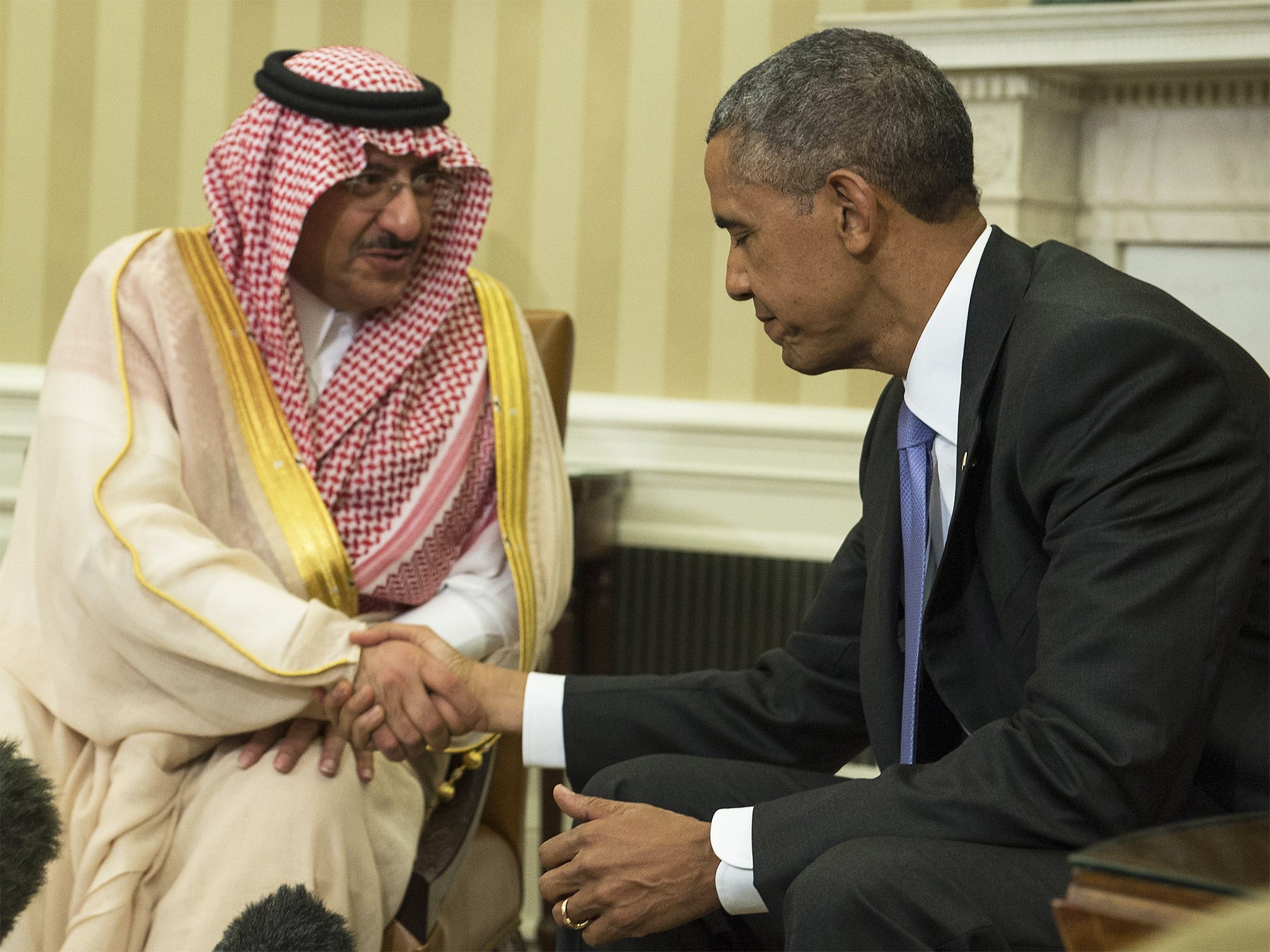US-Gulf summit: Both sides understand the need to stay friends
This marriage of convenience, however, masks a host of differences


Iran, and how to handle it, is obviously the immediate focus of President Obama’s summit here with leaders of the Gulf states – and the absence of the most important invitee, King Salman of Saudi Arabia, is a sign that these traditional US allies are not best pleased with Mr Obama’s apparent determination to secure a nuclear deal with Tehran.
But the meeting also reflects underlying changes in a relationship that dates back to February 1943, in the midst of the Second World War, when President Franklin D. Roosevelt pledged to Ibn Saud, the kingdom’s founder, that “the defence of Saudi Arabia is vital to the defence of the United States.”
In the 70 years since, Washington and Riyadh have been bound together by a bargain of respective national interests, rather than affection: For the US, oil and vital military bases in the region; for the Sunni-ruled Gulf States, an American security umbrella.
This marriage of convenience, however, masked a host of differences. America turned a largely blind eye to Saudi Arabia’s dismal record on human rights and democratic government, and funding from the kingdom for extremist Islamic groups.
For the conservative Saudi rulers, freewheeling and disputatious US society was not a model to be followed. But hardheaded calculations of self interest kept the partnership alive and thriving.
Now, however, perspectives are changing. For Mr Obama, a deal with Iran offers the best longterm hope of regional stability. But the Saudis believe that an Iran liberated from sanctions will simply have the means to make more trouble.
Even the oil bond is less compelling. The vast increase in domestic production here means the US is less reliant on imports from Saudi Arabia.
Nonetheless, the basic bargain, however frayed, is not entirely broken.
Both sides understand the risks of total rupture. Saudi Arabia and the Gulf states, equipped primarily with US weapon systems, remain dependent on spare parts to keep their armed forces functioning. For its part, Washington knows that a nuclear deal with Iran, and its own withdrawal from the region, could prompt Saudi Arabia, Egypt and others to seek nuclear weapons of their own.

Join our commenting forum
Join thought-provoking conversations, follow other Independent readers and see their replies